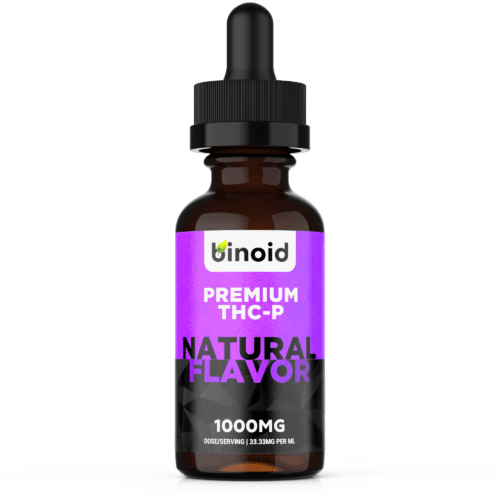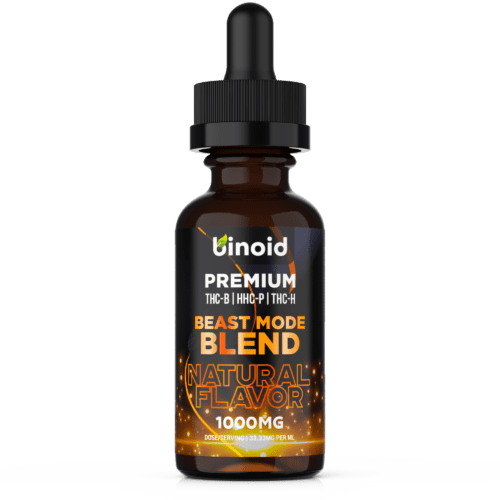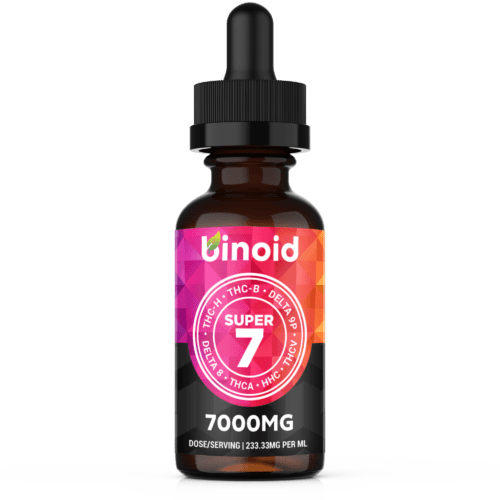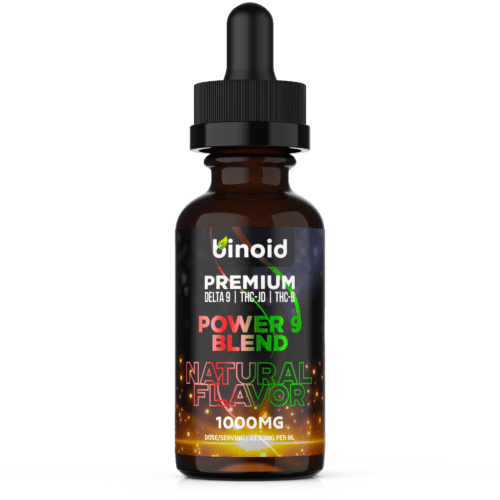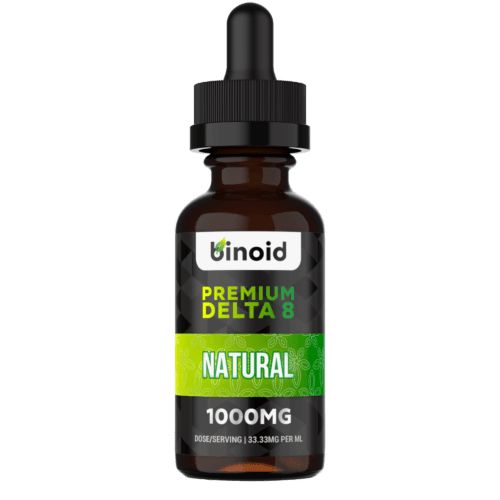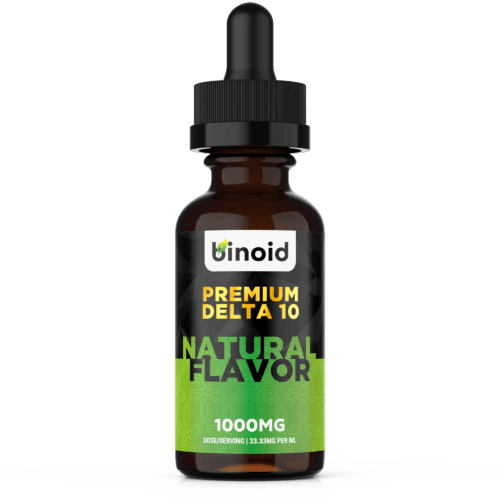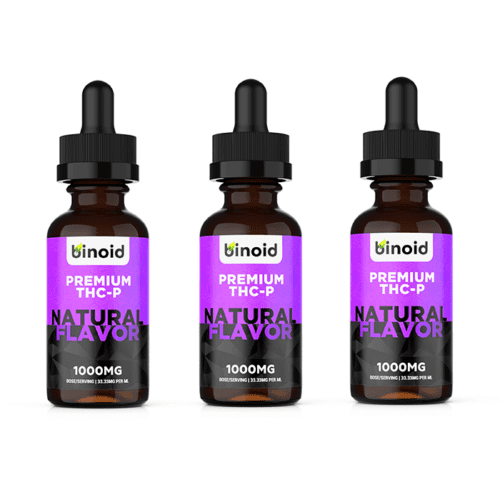Best THC-P Tincture of 2025: Tested and Reviewed
Prepare to delve into the forefront of 2025’s tincture evolution: THC-P tinctures. We’re not discussing ordinary oils; we’re exploring precisely formulated elixirs, each designed to unlock potent, nuanced, and truly elevated experiences. Envision expertly crafted blends, a versatile and smooth delivery method, and THC-P purity that redefines the tincture’s potential. Join us as we unveil the brands leading this exciting transformation, showcasing the best of what they have to offer in this dynamic market.
To Buy THC-P Tinctures Click Here
Recommended products
An Insight into THC-P THC Tinctures
Getting acquainted with THC-P tinctures begins with appreciating the intricate process behind their creation. That’s right, from the THC-P itself to everything else in between, there’s a lot that goes into the process.
You see, THC-P based products in general are primarily made through a process of chemical synthesis rather than direct extraction from cannabis plants due to the extremely low natural concentrations of THC-P. Here’s a detailed breakdown of the process:
1. High-Quality Hemp-Derived CBD Isolate as the Precursor:
Cultivation and Harvesting: The process begins with the cultivation of industrial hemp strains specifically bred for high CBD content and low THC content (below the legal limit of 0.3% Delta-9 THC). Harvesting typically occurs when the plants reach peak cannabinoid production.
Initial Extraction: Various extraction methods can be employed at this stage, with supercritical CO2 extraction being a prevalent choice due to its efficiency, ability to preserve cannabinoid integrity, and minimal solvent residue. Other methods include ethanol extraction or hydrocarbon extraction.
Crude Oil Processing: The initial extract, often a thick oil, contains a mixture of cannabinoids, terpenes, lipids, waxes, and other plant compounds. This crude oil undergoes a series of refinement steps.
Winterization: To remove fats and waxes, the crude oil is typically dissolved in a solvent (like ethanol) and subjected to sub-zero temperatures. This causes the unwanted lipids and waxes to precipitate out, which are then filtered away.
Decarboxylation: The cannabinoid acids (like CBDA) present in the extract need to be converted to their active forms (like CBD). This is achieved through decarboxylation, a process of heating the extract to a specific temperature for a defined period. This removes a carboxyl group (-COOH) from the cannabinoid acid molecule.
Distillation: To further purify the CBD and remove remaining impurities, the decarboxylated extract undergoes fractional distillation. This process leverages the different boiling points of various compounds in the mixture. Under vacuum and controlled temperatures, the CBD is vaporized and then condensed, resulting in a more concentrated and purified CBD distillate. Multiple passes of distillation can be performed to achieve higher purity.
Crystallization and Isolation: The final step in obtaining CBD isolate involves dissolving the CBD distillate in a non-polar solvent (like heptane) and allowing it to crystallize under specific conditions. The resulting CBD crystals are then separated from the solvent through filtration or centrifugation. The isolated crystals are typically washed and dried to yield a pure CBD isolate in powder or crystalline form, often exceeding 99% purity. This high-purity CBD isolate serves as the crucial starting material for THC-P synthesis.
2. The Chemical Synthesis of THC-P:
Reaction Chemistry: The core of THC-P production lies in a sophisticated organic chemistry process. The key transformation involves modifying the alkyl side chain at the 3-position of the CBD molecule. CBD has a pentyl (five-carbon) side chain, while THC-P has a heptyl (seven-carbon) side chain.
Specific Reagents and Catalysts: The synthesis typically involves the use of carefully selected organic reagents and catalysts. These reagents facilitate the formation of new carbon-carbon bonds necessary to extend the alkyl chain. The specific reagents and reaction pathways employed are proprietary to the synthesizing lab and are often optimized for yield and purity. Common organic chemistry techniques like Grignard reactions or Wittig reactions might be adapted for this purpose, although the exact methodologies are closely guarded.
Controlled Reaction Conditions: The chemical conversion is conducted under strictly controlled laboratory conditions. Factors such as reaction temperature, pressure, reaction time, and the stoichiometry of the reactants are precisely managed to maximize the formation of THC-P and minimize the generation of unwanted byproducts, including isomers or other cannabinoids. Inert atmospheres (e.g., nitrogen or argon) are often used to prevent unwanted side reactions.
Monitoring and Analysis: Throughout the synthesis, the reaction progress is meticulously monitored using analytical techniques such as thin-layer chromatography (TLC), high-performance liquid chromatography (HPLC), and gas chromatography-mass spectrometry (GC-MS). These techniques allow chemists to track the consumption of the starting material (CBD) and the formation of the desired product (THC-P), as well as identify any impurities.
3. Purification and Isolation of the Synthesized THC-P:
Work-up Procedures: After the chemical reaction is complete, a series of work-up procedures are performed to neutralize any remaining reagents and remove any solid byproducts or salts. This often involves extraction with immiscible solvents to separate the organic compounds from aqueous solutions.
Chromatographic Separation: The crude THC-P product is then subjected to various chromatographic techniques to achieve high purity. These techniques exploit the different physical and chemical properties of the compounds in the mixture to separate them. Common methods include column chromatography, flash chromatography, and preparative HPLC. The choice of stationary phase and mobile phase is crucial for achieving effective separation of THC-P from any remaining starting material, reaction byproducts, or isomers.
Spectroscopic Analysis: Once the THC-P is isolated, its chemical structure and purity are confirmed using advanced spectroscopic techniques such as nuclear magnetic resonance (NMR) spectroscopy, mass spectrometry (MS), and infrared (IR) spectroscopy. These techniques provide detailed information about the molecular structure and ensure that the desired THC-P molecule has been successfully synthesized and is free from significant impurities.
4. Formulation into Products:
Dilution and Blending: The purified THC-P extract, often in a highly concentrated form, is typically diluted with carrier oils or other compatible solvents to achieve desired potency levels for various applications. This process ensures accurate dosing and facilitates easier handling.
Integration with Other Ingredients: Depending on the intended use, the THC-P extract may be blended with other cannabinoids (such as Delta-8 THC or CBD), terpenes for flavor and aroma enhancement, and other excipients or ingredients to create the final product form. This blending process is carefully controlled to ensure homogeneity and stability of the final formulation.
Quality Control Testing: Before being incorporated into final products, the formulated THC-P mixtures undergo rigorous quality control testing to verify cannabinoid content, potency, terpene profiles (if applicable), and the absence of harmful contaminants such as residual solvents, pesticides, and heavy metals. This ensures product safety and consistency. Not to mention, being 2018 Farm Bill compliant in the process.
Now, the interesting thing is that THC-P is thought to be 30x stronger than regular Delta 9 THC! Yes, 30x stronger than regular THC.
Recommended products
How We Came Up with a List of Top THC-P Tincture Brands
Selecting the “Top THC-P Tincture Brands” in today’s hemp marketplace was a bit tricky. With a nice selection of brands competing for attention, we carefully assessed several key things here. Basically, the intent was to highlight brands that consistently deliver in numerous facets, specifically as it pertains to the following:
THC-P Quality and Purity: Our evaluation began with a rigorous examination of the source of the THC-P, demanding full transparency in extraction methods, and requiring comprehensive third-party lab testing. The purity of the THC-P distillate was paramount, ensuring the absence of unwanted byproducts or contaminants. Brands demonstrating a commitment to clean, solvent-free extraction processes were given preference. We focused on brands that prioritized the purity and potency of their THC-P, ensuring a consistent and reliable experience for consumers.
Tincture Variety (Flavored or Flavorless, Terpenes, etc.): We assessed the range of THC-P tincture options, considering the availability of flavored and unflavored varieties, as well as the inclusion of specific terpenes or other beneficial compounds. Brands that offered diverse options, allowing consumers to tailor their experience, were given higher consideration. We looked for innovation in tincture formulations, such as unique blends and ratios. The availability of various strengths and bottle sizes was also taken into account, catering to both new and experienced users.
Tincture Quality (inside and out): The overall quality of the THC-P tinctures was a key factor, with a focus on the quality of the carrier oils, the precision of the droppers, and the durability of the packaging. Brands that prioritized high-quality ingredients and meticulous manufacturing processes were favored. We paid close attention to the consistency of the tincture’s viscosity, the clarity of the oil, and the accuracy of the dosing measurements. The functionality and ease of use of the tincture bottles were also considered.
Customer Reviews: Customer feedback played a crucial role, with a focus on reviews regarding the efficacy, flavor, and overall satisfaction with the tinctures. Brands with consistently positive reviews and a strong reputation for customer service were given higher priority. We looked for patterns in customer experiences, identifying brands that consistently delivered on their promises. The responsiveness of customer service teams and the transparency of customer interactions were also considered. We sought brands that valued customer feedback and used it to improve their THC-P products and services.
Brand Reputation: The overall reputation of each brand was evaluated, considering their longevity, transparency, and commitment to ethical practices. Brands with a proven track record and a strong sense of integrity were given preference. The brand’s commitment to sustainable and environmentally friendly practices was also taken into account. We sought brands that were not only focused on producing high-quality THC-P products but also on making a positive impact on the industry. The brand’s engagement with the community and their support of industry initiatives were also considered.
Recommended products
Top THC-P Tincture Brands
In 2025, the THC-P tincture market is characterized by a commitment to quality and consumer choice. The following brands have distinguished themselves by consistently delivering exceptional products.
THC-P Tincture Brand #5: Highly Concentr8ed LLC (HC8)
Highly Concentr8ed LLC (HC8) has established a presence in the THC-P tincture market by offering potent and straightforward formulations. They prioritize the potency of their THC-P distillate and a commitment to providing effective products. HC8’s tinctures are known for their strong effects and their focus on delivering a concentrated dose of THC-P. Their dedication to potency and simplicity has attracted a customer base seeking a powerful tincture experience.
Their THC-P tincture line features high-strength THC-P options, designed to deliver a significant dose of the cannabinoid. HC8 emphasizes the potency of their distillate and utilizes high-quality carrier oils for optimal absorption. The brand focuses on providing a straightforward and potent tincture option.
THC-P Tincture Brand #4: Carolindica
Carolindica has gained recognition for their focus on providing high-quality THC-P tinctures with a commitment to purity and consistency. They emphasize the quality of their ingredients and the precision of their formulations. Carolindica’s tinctures are known for their reliable effects and their attention to detail, offering a refined THC-P experience. Their commitment to quality and consistency has earned them a positive reputation.
Their tincture line features options with carefully measured doses of THC-P, often blended with other cannabinoids for enhanced effects. Carolindica prioritizes the purity of their distillate and utilizes high-quality carrier oils for optimal absorption. The brand emphasizes quality and consistency in their formulations.
THC-P Tincture Brand #3: Strains-Rx
Strains-Rx has established a presence in the alternative cannabinoid tincture market, offering unique blends that incorporate THC-P. They are known for their innovative formulations and their focus on delivering a variety of effects. Strains-Rx’s tinctures are recognized for their creative cannabinoid combinations and their potential to provide a distinct experience. Their commitment to innovation and variety has attracted consumers seeking something different.
Their tincture selection includes unique blends, often incorporating THC-P with other cannabinoids like Delta 9 THC and CBD. Strains-Rx emphasizes the quality of their ingredients and their careful formulation process. The brand focuses on providing innovative and diverse tincture options.
Recommended products
THC-P Tincture Brand #2: Harbor City Hemp
Harbor City Hemp has distinguished itself by offering high-quality and affordable THC-P tinctures with a focus on transparency and customer education. They prioritize providing detailed information about their products and ensuring customer satisfaction. Harbor City Hemp’s tinctures are known for their reliable effects and their commitment to quality, offering a trustworthy and accessible THC-P option. Their dedication to transparency and customer service has earned them a loyal following.
Their tincture line features options with carefully measured doses of THC-P, often blended with other cannabinoids for enhanced effects. Harbor City Hemp prioritizes the purity of their distillate and utilizes high-quality carrier oils for optimal absorption. The brand emphasizes transparency and customer education.
THC-P Tincture Brand #1: Binoid
Binoid has established itself as a leader in the THC-P market by offering a unique and potent products designed for an easy and enjoyable body and mind experience. For instance, Binoid’s Natural Flavor THC-P tincture is the first real THC-P tincture available, setting a new standard for this type of product. Binoid’s commitment to quality is evident in their formulation, which combines 1000mg of premium Delta 8 and THC-P distillate with MCT oil.
This THC-P tincture is characterized by its high potency, containing 920mg of THC-P and Delta 8, using 92% premium distillate, and is 100% natural and hemp-derived. Binoid emphasizes that this tincture is specifically designed for under-the-tongue dosing and advises caution due to its potency.
Binoid‘s influence in the THC-P tincture market is furthered by their dedication to transparency and consumer education. They provide clear information about their product and emphasize responsible use. That commitment to delivering a potent, pure, and reliable THC-P tincture, combined with a focus on consumer awareness, solidifies Binoid’s position as a leading and innovative brand in this space.
Recommended products
You’re Looking at Some Powerful Tincture Brands That’re Making a Bold Impact for 2025!
In a market characterized by increasing sophistication and consumer awareness, these brands have distinguished themselves through their unwavering commitment to quality, innovation, and customer satisfaction. They offer a range of tincture options that cater to diverse preferences and needs, ensuring that every consumer can find the perfect fit. Their dedication to transparency, rigorous testing, and high-quality formulations sets them apart, establishing them as leaders in the THC-P tincture market. These brands are not merely keeping pace with the times; they are actively shaping the future of THC-P tinctures, setting new standards for excellence and innovation in the hemp-derived tincture space.

